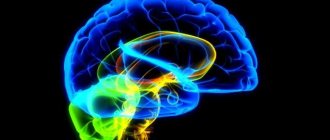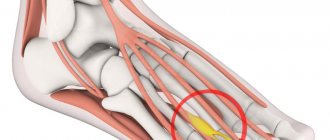What is abnormal personality development?
Abnormal personality development is a chronic change that is not related to brain damage or disease. This development includes a variety of personality or behavioral disorders that developed as a result of unfavorable factors and influences. Scientists also note that abnormal personality development occurs as a result of excessive prolonged stress. Personal changes can arise as a result of long-term neuroses or severe and prolonged psychogenic disorders, and they are considered within the framework of neurotic and psychogenic development.
Reasons that contribute to the occurrence of abnormal personality development:
- Genetic or psychological, biological predisposition;
- Parent-child relationships and psychodynamics;
- Learned behavior;
- Individual distorted thinking;
- Security or affection to a certain extent.
Since abnormal personality development is a rather complex process, no highly qualified scientist in the medical field can explain the reasons for its occurrence.
The classification of abnormal development was built by scientists on the basis of the area of \u200b\u200bthe psyche in which abnormal phenomena arose:
- Regression - today there are temporary regression and persistent regression. It is expressed in the temporary loss of walking skills and the manifestation of somatic ailments in the initial stage of life. Regression can also occur as a result of pathological influences such as shock mental trauma or the initial stage of the schizophrenic process.
- Retardation is a stop in mental development, divided into total and social mental retardation. If partial, that is, partial mental retardation manifests itself, therefore, there is a suspension of the development of mental functions and personality traits.
- Asynchrony of mental development is a distorted, anal and disharmonious development, which is expressed by the advance of mental functions and properties that form the personality. However, there is a visible lag in terms and rates of maturation of functions and properties, which lead to mental disharmony.
How to stop being neurotic?
Psychologists say that a person with a nervous disorder must learn to relieve tension. To hear yourself and your body, you need to free yourself from subconscious fears, complexes and stereotypes. The neurotic personality type can be rebuilt using the following relaxation exercises:
- You need to learn to concentrate on yourself. To develop this feeling, you need to go to the wall and stand with your back against it at a distance of 10-15 cm. Relax and focus on your own condition. Close your eyes and start falling backwards.
- To relieve nervous tension, you can start swinging and this method often works on an instinctive level. It is important to find your own rhythm.
- It is recommended to keep a psychological diary, where you need to record your own feelings and changes occurring in your inner world. It is important to be aware of your own “I”, to understand values and relationships.
- Continuing to find out who neurotics are and how to cope with the problem on your own, it is worth giving one more piece of advice: it is useful to regularly reflect on ideas, people, events, and also conduct an internal dialogue with yourself.
Neurosis and depression - what are the differences?
As you know, a person’s entire life depends on his psychological state, therefore, success in his career, health and relationships with people. Therefore, if you or your loved ones exhibit symptoms of depression or neurosis, it is necessary to contact specialists as soon as possible, since these ailments cannot be ignored in order not to harm your own future. Neurosis is a broad concept that is a group of mental disorders accompanied by a variety of symptoms and causes. However, scientists have found that neurosis is characterized by a depressed and anxious state, which can be caused by exhaustion of the nervous system.
Depression is a common mental disorder characterized by a lack of joy and negative judgments. Sometimes a person may lose interest in life. However, most people believe that depression is not a disease that needs to be treated, but a person’s normal bad mood. However, scientists argue that this judgment is erroneous because many people suffer from depression in some cases can lead to detrimental consequences. Therefore, it is necessary to treat this disease by competent specialists. It is known that neurosis and depression often accompany each other, causing depressive neurosis. It is important to remember that neurosis is a nervous and anxious state that is caused by external factors, and depression is a condition that is caused by internal mental causes. Signs of these ailments can be complex internal ailments, physiological and psychological problems or processes. Often in the female body, these diseases manifest themselves due to hormonal imbalance. And the first symptom may be the presence of paranoia or schizophrenia.
Physical, psychological and behavioral symptoms
- Sleep disturbances, which can be expressed in the form of insomnia or short sleep after which a person feels tired;
- Without a reason, pain and heaviness in the abdominal area, which are accompanied by abnormalities in the functioning of the stomach;
- Headaches accompanied by migraines, as well as increased sweating, nervous tics;
- Panic attacks;
- Pain in the heart area during which tachycardia may develop;
- Anxious, depressed or tearful mood;
- Constant feeling of guilt;
- The emergence or exacerbation of phobias;
- Decreased attention or slow thinking;
- Deep pessimistic reasoning and sudden mood swings, often showing a strong reaction to stressful situations.
Causes of depressive neuroses:
- Traumatic events such as moving or losing a loved one;
- Tense situation at work or in the family;
- Workaholism;
- Unsettlement, which can be domestic or personal.
- Failure of biorhythms;
- Mental disorders in the initial stages.
If you or your loved ones have such reasons and or above the symptoms presented, then you need to contact competent and experienced specialists, since this disease can lead to harmful consequences.
Neurotic man
All the symptoms described earlier are also relevant for representatives of the stronger sex, and vice versa. When a mental disorder is present for a long time, physiological problems may arise.
- sexual disorders;
- neuroticism is accompanied by frequent headaches and dizziness;
- blood pressure surges;
- constant feeling of fatigue and insomnia;
- fear of illness and panic about one’s health.
Neurotic personality development
One of the varieties of stable characterological configurations is the so-called neurotic personality development. In contrast to the above-described unbalanced configurations and accentuations of a person, which, according to the essence, represent the result of an erroneous, distorted course of its development, neurotic formation presupposes the result of the destruction of a personality that has passed the period of standard formation and entered into life without clear features of disharmony. This destruction is established due to the long-term influence of negative emotional conditions. Bearing in mind a certain similarity between the manifestations of neurotic formation and unbalanced disorders, it is sometimes established as “acquired psychopathy.” According to “minor psychiatry,” the word “pathocharacterological development” is also used.
In 1769, physician William Cullen named neurotic personality development as neuroses. However, today neurotic personality development is one of the fundamental neuroses.
Types of neurotic personality development
- Phobic disorder. With this type, it doesn’t take long for a person to develop excessive anxiety, which later turns into a phobia. At various stages of development of this disease, panic attacks may occur, which are accompanied by pain in the chest, increased sweating, trembling in the hands, and sometimes nausea.
- Depressive neurotic personality development. Symptoms are clearly expressed in the form of deep grief or sadness, and there is also a lack of interest in certain things and actions that were perceived positively before the onset of the disease;
- Impulsive disorder. During this illness, obsessive images and thoughts appear;
- Somatoform disorders, which are accompanied by various symptoms, are similar to the manifestation of somatic ailments. Consequently, the patient experiences pain. However, he cannot explain the reason for their occurrence, and experts are not able to find them;
- Post-traumatic disorders caused by severe stressful situations, feathery psychological trauma. Often this disease occurs in the presence of extreme situations;
6. Dissociative disorder, initially experts called it hysterical syndrome. The causes of neurotic personality development This question is asked by many scientists from different countries, and today the causes of neurotic disorders have not been fully studied.
Factors that contribute to various diseases
- Predisposition to neuroses;
- Psychological trauma;
- Intense stress, that is, physical and psychological, which are simultaneously combined with stressful conditions or problems of personal life;
- Exhaustion of the nervous system, which can be caused by attempts to solve pressing problems;
- Congenital or acquired tendency to fatigue;
- Abuse of bad habits such as alcohol, drugs, which lead to deviations in neurotic personality development.
When making various diagnoses related to neurotic personality development, a highly qualified specialist must listen to the patient’s complaints, but at the same time he must take into account the adequate state, both physical and mental. During the diagnosis, organic causes that contributed to neurotic symptoms will be excluded. Also, do not forget that in rare cases, if a patient is diagnosed with a physical illness, then neurotic personality development can be regarded as a concomitant illness that can burden neurosis. Therefore, in this situation, medical specialists need to carefully select medications in order not to aggravate the patient’s condition, but to stabilize it.
Scientists note that today the most popular neurotic personality developments are:
- Anxiety or phobic disorders;
- Astheno-neurotic syndrome or neurasthenia;
- A depressive neurotic disorder called dysthymia;
- Somatoform or neurotic disorders;
- Neuroses that were caused by stressful situations.
Neurotic personality development can also develop in childhood, so it must be diagnosed in the early stages. Today, as we know, there are many neurotic personality developments, and their manifestations are widespread and varied. However, some consequences can be sad. Medical workers note that not noticing neurotic disorders is very dangerous, so they need to be treated in order to stop the development of the disease and save the person - the patient.
How not to raise a neurotic?
Many parents do not even suspect that by their actions they are harming their child, disturbing his psyche. It is important to know that a neurotic is a personality type that can be formed due to improper upbringing. To avoid mistakes, you need to consider the following tips:
- You cannot focus only on achievements and especially on failures.
- Parents should not ridicule their child for his actions or defects in appearance.
- Explain your decisions and answer all questions. The child must understand the situation and draw conclusions about what is good and what is bad. Phrases like “behave well” or “don’t act stupid” should be excluded, and it is better to give the child an explanation.
- Many parents, unwittingly, form phobias in their children. You can’t create fear by saying that a policeman or Baba Yaga will come. Experts do not recommend using the phrases: “stop whining” or “don’t be a coward.”
- A neurotic character can be cultivated by instilling in a child the idea that people are all bad and that good deeds should not be expected from them. Many mothers often use the phrase “all men are assholes” with their daughters.
Problems of neurotic development
Problems of neurotic development lie in the etiology of neuroses, which were identified in the form of mental trauma suffered in infancy, that is, in childhood and are prerequisites for the development of this disease. Consequently, they may be the loss of loved ones, various conflict situations, or a turbulent, that is, not harmonious situation in the family. Scientists say that problems may also be associated with school psychological trauma. But basically, all people who suffer from neurotic personality disorders are unaware of the true cause of their anxious state. It is important to remember that problems of neurotic development can begin both in childhood and in adulthood, depending on the impact factor and the issues that contributed to the development of such a disease.
Anomaly of personality development such as neuroses and depression, that is, neurotic personality development can develop due to contributing factors and genetic predisposition. Therefore, qualified medical professionals advise patients, if the slightest symptoms of a particular neurotic illness occur, to contact a qualified and competent specialist to make an accurate diagnosis or refute it. Since timely diagnosis of neurotic personality development can contribute to the patient’s further well-being and will not harm his future. In this regard, it is necessary to recall that in order not to get sick with this disease, it is necessary to avoid a large number of stressful situations, and you should also not overdo it at work in order to avoid workaholism. Since these factors are fundamental for the development of neurotic diseases. Do not forget that this illness cannot be left to chance, but you must contact qualified doctors who can help you cure this illness, as well as prevent its consequences.
Harmonious type
Characteristic is the patient's current assessment of his own condition. He is not inclined to exaggerate the severity of the illness, but he does not suffer from underestimating the current condition. The patient strives to actively participate in his treatment. He doesn't want to burden others with problems. If there is a negative prognosis for treatment, the patient switches his attention to areas of life in which he can change something. A person focuses on his family, work, and so on.
Clinical picture
A person suffering from neuroticism is characterized by excessive and sometimes inappropriate anxiety. An example is a situation where a person, having left the house and checked all the appliances, taps, switches, etc., is still worried about whether he forgot to turn off the lights, iron, turn off the tap or lock the front door. In addition, such a person may be afraid of public places, or rather of glances directed at him; he may feel that he is dressed inappropriately or carelessly.
Anxiety can also be caused by thoughts about financial difficulties that actually do not exist. Sometimes such people build criteria that the people around them and themselves must meet, and if the requirements turn out to be too high, this depresses them and makes them worry. Your own health is another reason for constant worry.
A neurotic is a person suffering from a psychological disorder - neuroticism
A neurotic person is constantly in a restless state; he is afraid and anxious even when everything is going quite well. A person with neuroticism becomes very vulnerable, chronically anxious and painfully competitive in relationships with other people. The life of a neurotic is a continuous series of problematic situations despite external well-being. This condition can be characterized in these words: it is very bad for the neurotic himself, but even worse for the people around him.
Consequences
The life of a neurotic differs from the life of ordinary people, since his emotionality and sensuality develop into psychosomatic diseases. So, the consequences of this condition:
- the discomfort that constantly “dwells” inside the neurotic - this creates problems with communication;
- a reaction to any stimulus that exceeds the reaction of any other individual;
- predisposition to fears and phobias.
The individual's appetite and sleep deteriorate, headaches and mental anxiety appear, and mood swings predominate.
Sometimes this manifests itself as a feeling of jealousy. For example, a husband, to please his inferiority complex, is afraid that his wife will find a more worthy partner and leave for him. With his mistrust and scandals, a man puts an end to a happy life together.
Sometimes a neurotic person develops a fear of large public events and public transport as a symptom. This also includes “paranoia” about turning off lights, electrical appliances, and locking the door after leaving.
Attitude towards love
Mentally unbalanced people very often inadequately assess what is happening around them, putting their desires above logic. The following methods of winning love are distinguished:
- Bribe
In this case, people are guided by the fact that they can bribe a certain person with their actions. And this is far from romantic. But who will tolerate constant irritability and mental imbalance? Of course, no one, so soon a hard refusal comes.
A pity
When a neurotic realizes that money cannot buy love, he switches to pitiful motives. This method is quite effective, especially for the fair sex, who spontaneously respond to the tears and requests of their neighbors. But here it is important to know the limits so as not to overdo it.
Threats
A very tough method, which a neurosthenic person switches to after all previous tests. Threats begin, even to the point that I will commit suicide, you and this whole world. This option is considered the saddest. A person dooms himself to loneliness.










